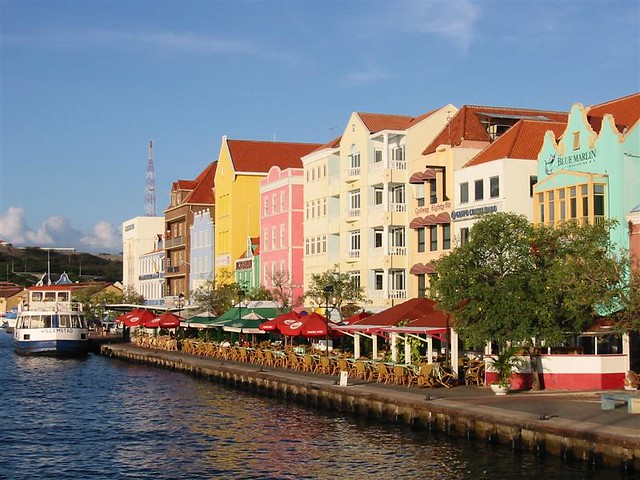How Living in Curacao Affects U.S. Expat Taxes
Curacao is the “C” that make up the ABC islands (along with Aruba and Bonaire). Historically, Curacao was an important Dutch port colony. Today, it is a popular tourist destination. People come for the people beaches; one can snorkel and scuba dive right off the beaches which contain beautiful coral.
If you are planning to become a U.S. expat in Curacao, or have been one for a while, it’s important to know the tax laws of the country and the potential impact on your U.S. tax return. Expat taxes can get complicated. Fortunately, we have outlined the key points below.

Photo by: Errol Bodie
How Living in Curacao Impacts U.S. Taxes
As a U.S. citizen or permanent resident (Greencard), you are required to file U.S. taxes even if you live in Curacao. Plus, if you have assets in foreign financial accounts (e.g., foreign banks), there are informational reports you may be required to file. For example, U.S. Expats Living in Curacao with $10,000 or more in foreign banks must file the FBAR (now known as FinCen 114).
Fortunately, the U.S. government provides various forms of tax relief that can lower or eliminate U.S. tax obligations
- The Foreign Earned Income Exclusion – It allows you to exclude a certain amount of income earned outside the U.S.
- The Foreign Housing Exclusion/Deduction – This one relates to additional income that can be excluded for household-related expenses tied to living abroad.
- The Foreign Tax Credit – It allows you to offset foreign taxes paid against U.S. tax obligations.
In most cases, the foreign earned income exclusion is preferable to the foreign tax credit if you live in a country with a lower tax rate than the U.S. (assuming your income is not above the applicable threshold). However, it’s a good idea to speak with an expat tax specialist to discuss the best application of these tax reliefs.
Taxation in Curacao
Let’s start by understanding who is required to pay taxes in Curacao. Foreigners are considered residents for tax purposes based on domicile, physical presence and location of vital importance, and are obligated to pay taxes on their world-wide income. Non-residents are taxed on Curacao-source income only.
The tax system in Curacao is progressive. The income tax rates are as follows:
- Employment Income: Progressive from 12% – 49%;
- Taxation on Interests: Generally same as employment income (except interest income from local bank accounts, which is taxed at 6.5%);
- Taxation on Dividends: Same as employment income;
- Taxation on Capital Gains: Generally none (certain exceptions exist)
Curacao and the U.S. do not have a social security tax agreement in-place. Therefore, certain U.S. expats will be required to pay into both social security programs.
FATCA and Curacao
The U.S. government is increasingly interested in knowing about the foreign assets held by its citizens and residents. As a result, it has been busy inking deals with other countries whereby foreign financial institutions (FFIs) will be required to:
- Identify accounts of U.S. persons;
- Report certain information to the IRS regarding those accounts;
- Withhold a 30% tax on certain payments to non-participating FFIs and account holders unwilling to provide the required information
As of the publication of this article, roughly 80 countries have either signed intergovernmental agreements with the United States or are in discussions. It is important to know that Curacao does have a FATCA agreement in-place with the U.S.
If you have any questions regarding your U.S. expat taxes, contact us today. We are here to help.
